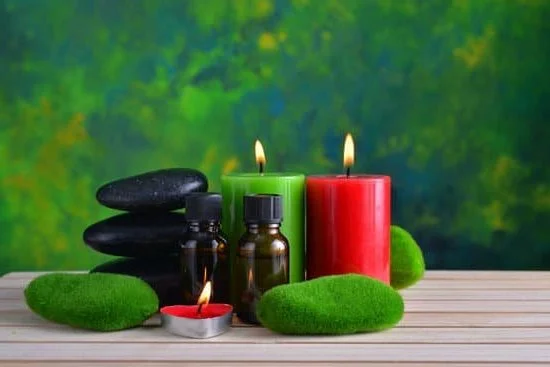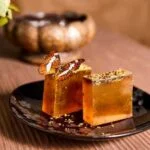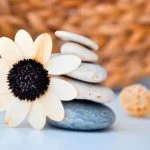Aromatherapy has gained popularity as a natural healing practice, utilizing the therapeutic properties of essential oils to promote overall well-being. From its historical origins to the various essential oils used, aromatherapy offers a holistic approach to health and wellness. But does aromatherapy work as an air freshener? In this article, we will explore the science behind aromatherapy, its effectiveness in freshening the air, and the potential benefits of incorporating it into your daily life.
The history of aromatherapy dates back thousands of years, with ancient civilizations using aromatic plants for medicinal and therapeutic purposes. Essential oils derived from plants and herbs are central to aromatherapy, each possessing unique properties that contribute to its healing effects. Aromatherapy works by diffusing these essential oils into the air, allowing their aromatic compounds to interact with the body’s senses and promote relaxation, reduce stress, and enhance mood.
Scientific research has shed light on the effectiveness of aromatherapy in influencing mood and emotions. The sense of smell is closely linked to the brain’s limbic system, which plays a vital role in regulating emotions and memory. As such, different scents can evoke specific emotional responses and trigger physiological changes in the body. This understanding forms the basis for using aromatherapy as an air freshener to create a pleasant and uplifting environment.
The Science Behind Aromatherapy
Aromatherapy has been used for centuries as a natural healing practice, utilizing the power of essential oils to promote physical and emotional well-being. The concept of aromatherapy revolves around the idea that certain scents have the ability to influence the brain and body, ultimately impacting mood, emotions, and overall health. Research and studies have delved into the science behind aromatherapy, shedding light on its effectiveness in promoting relaxation, reducing stress, and even boosting cognitive function.
Effect on the Brain and Body
The use of essential oils in aromatherapy can have a profound impact on the brain and body. When inhaled, the molecules from the oils stimulate olfactory receptors in the nose, sending signals to the limbic system – the part of the brain that regulates emotions and memories.
This interaction can trigger various physiological responses, such as changes in heart rate, blood pressure, and stress levels. Additionally, some essential oils have been found to have direct pharmacological effects when absorbed through the skin or ingested (in controlled settings).
Research and Studies
Numerous studies have been conducted to investigate the therapeutic benefits of aromatherapy. For example, a study published in Complementary Therapies in Medicine found that inhaling lavender essential oil reduced anxiety levels in patients awaiting dental treatment. Another study in Evidence-Based Complementary and Alternative Medicine demonstrated that inhaling a blend of citrus and lavender essential oils improved mood and reduced stress among postpartum women. These findings provide scientific evidence supporting the efficacy of aromatherapy in promoting emotional well-being.
Influence on Mood and Emotions
Scents can evoke powerful emotional responses due to their ability to trigger memories and associations. Certain essential oils are known for their uplifting or calming properties, which makes them effective tools for managing mood disorders like anxiety or depression. For example, citrus scents are often used for their energizing effects, while lavender is renowned for its calming properties.
The use of these scents through aromatherapy can help create a more positive and balanced emotional state for individuals. Whether it’s through inhalation or topical application, aromatherapy has been shown to positively influence mood and emotions.
Does Aromatherapy Work as an Air Freshener?
Aromatherapy has been used for centuries as a natural healing practice, harnessing the power of essential oils to promote physical and psychological well-being. But can aromatherapy also work effectively as an air freshener? The answer is yes, it absolutely can. In fact, using aromatherapy as an air freshener can provide numerous benefits beyond just emitting pleasant scents into the air.
Traditionally, air fresheners come in the form of aerosol sprays, plug-in devices, or scented candles. While these methods may temporarily mask odors, they often contain artificial chemicals and fragrances that can be harmful to our health and the environment.
On the other hand, aromatherapy utilizes pure essential oils extracted from plants, flowers, fruits, and herbs. When diffused into the air through methods like nebulizing diffusers or ultrasonic diffusers, these essential oils not only eliminate bad odors but also offer therapeutic properties that can positively impact mood and overall well-being.
Essential oils such as lavender, eucalyptus, lemon, peppermint, and tea tree are popular choices for air freshening due to their natural antibacterial and antifungal properties. They not only effectively combat unpleasant odors but also help purify the air by killing bacteria and microbes.
Additionally, these essential oils have been found to have mood-boosting effects, promoting relaxation and reducing stress and anxiety levels. So when using aromatherapy as an air freshener, one not only benefits from a pleasant scent but also from potential health advantages.
- Tibetan Itok Chakras Incense Sticks
- Lavender Essential Oil
- Peppermint Aromatherapy Diffuser
Benefits of Using Aromatherapy as an Air Freshener
Aromatherapy offers a range of benefits beyond just creating pleasant scents in the air. When used as an air freshener, essential oils can contribute to a healthier and more harmonious living environment. In this section, we will explore the additional advantages of using aromatherapy as an air freshener, particularly in relation to promoting wellness and reducing stress.
Additional Health Benefits
Aside from simply masking unwanted odors, aromatherapy as an air freshener can also have positive effects on our physical and mental well-being. Certain essential oils have antimicrobial properties, which can help purify the air by eliminating bacteria and airborne pathogens.
For example, tea tree oil is known for its antibacterial and antiviral properties, making it a popular choice for naturally disinfecting the air. This not only helps in maintaining a clean and healthy environment but also contributes to preventing the spread of illnesses.
Furthermore, the inhalation of certain essential oils used in aromatherapy has been shown to have therapeutic effects on the body and mind. For instance, lavender oil is renowned for its calming properties and is often used to promote relaxation and alleviate stress. By incorporating lavender or other soothing essential oils into the air through aromatherapy methods, individuals may experience reduced anxiety levels and improved sleep quality.
Potential Impact on Overall Well-Being
In addition to addressing physical health concerns, using aromatherapy as an air freshener can positively impact overall well-being. The power of scent should not be underestimated, as it can significantly influence mood and emotions. Aromatherapy allows individuals to create personalized atmospheres by selecting specific essential oils based on their desired effects. For example, uplifting citrus oils like lemon or sweet orange can help invigorate the senses and boost energy levels.
By introducing pleasant scents into living or working spaces through aromatherapy, individuals may experience enhanced feelings of comfort, contentment, and mental clarity. This holistic approach to promoting emotional balance aligns with the principles of aromatherapy as a natural healing practice. Aromatherapy as an air freshener does not just serve a functional purpose – it nurtures a positive atmosphere that supports emotional well-being.
Encouraging Exploration and Experimentation
One of the most exciting benefits of using aromatherapy as an air freshener is that it encourages individuals to explore different scents and experiment with various combinations of essential oils. This process of customization allows for personal expression while providing an opportunity for self-discovery in terms of preferred fragrances and their corresponding effects.
Rather than relying on synthetic air fresheners with limited scent options, individuals can delve into the world of natural essential oils and discover which blends resonate best with them. This element of creativity adds to the overall satisfaction derived from using aromatherapy as an air freshener, further enriching the experience beyond just improving indoor air quality.
Overall,
Common Essential Oils Used for Air Freshening
When it comes to using aromatherapy as an air freshener, there are several essential oils that are commonly used for their pleasant scents and air-purifying properties. These essential oils can be diffused into the air to create a natural and inviting atmosphere in any space. Here are some of the most popular essential oils used for air freshening:
1. Lavender: Known for its calming and relaxing scent, lavender essential oil is often used to promote a peaceful environment and reduce stress and anxiety.
2. Peppermint: With its invigorating and refreshing aroma, peppermint essential oil can help clear the air and create a revitalizing atmosphere in any room.
3. Lemon: The bright and citrusy scent of lemon essential oil not only freshens the air but also uplifts the mood, making it a popular choice for air diffusion.
4. Eucalyptus: Often used for its respiratory benefits, eucalyptus essential oil can purify the air and promote easier breathing, making it ideal for use in spaces where clean air is desired.
5. Tea Tree: Known for its antibacterial and antifungal properties, tea tree essential oil can help eliminate airborne toxins and germs, making it an effective natural air freshener.
Each of these essential oils has unique properties that make them suitable for air freshening purposes. They can be used individually or combined to create customized blends based on personal preferences or specific needs.
Overall, these essential oils not only add pleasant scents to the air but also contribute to a healthier indoor environment due to their natural antibacterial and antifungal properties. Whether used alone or in combination with other oils, they offer a natural alternative to traditional chemical-based air fresheners.
Incorporating these essential oils into daily routines can provide an aromatic experience that promotes both physical and emotional well-being while effectively freshening the surrounding air. As such, aromatherapy proves to be a powerful alternative as an air freshener compared to conventional products available in the market that may contain harmful chemicals.
Different Methods of Using Aromatherapy for Air Freshening
Aromatherapy can be an effective and natural way to freshen the air in your home or workspace. When compared to traditional air fresheners, which often contain synthetic chemicals and artificial fragrances, aromatherapy offers a chemical-free alternative that not only masks bad odors but also provides potential health benefits. But how does aromatherapy work as an air freshener?
One of the most popular methods of using aromatherapy for air freshening is through the use of essential oil diffusers. These devices disperse essential oils into the air as fine, aromatic mists, effectively eliminating odors and creating a pleasant environment. Essential oils have natural antibacterial and antifungal properties, which can help in neutralizing and eliminating unpleasant smells in the air.
In addition to diffusers, aromatherapy can also be used to create DIY air freshening products such as room sprays, linen sprays, and reed diffusers. By blending essential oils with water or alcohol, you can create customized scents to freshen different areas of your home or office space. This allows for a personalized and versatile approach to air freshening that traditional commercial products may not offer.
Using essential oils for aromatherapy brings more than just a pleasant scent – it also has potential health benefits. Different essential oils have varying properties that can help in reducing stress and anxiety, promoting relaxation, improving mental clarity, and even boosting mood. This makes aromatherapy a holistic approach to not only freshening the air but also enhancing overall well-being.
| Aromatherapy Method | Benefits |
|---|---|
| Essential Oil Diffusers | Effective in eliminating odors; provides potential health benefits |
| DIY Air Freshening Products | Customized scents for different areas; versatile approach to air freshening |
| Potential Health Benefits | Reduces stress and anxiety; promotes relaxation; improves mental clarity; boosts mood |
Safety Precautions and Best Practices
Aromatherapy has been used for centuries as a natural healing practice, harnessing the power of essential oils to promote overall well-being. However, when using essential oils for air freshening, it is important to take certain safety precautions and best practices into consideration to ensure their effective and safe use.
Firstly, it is crucial to properly dilute essential oils before using them as an air freshener. Undiluted essential oils can be too potent and may cause skin irritation or allergic reactions when they come into direct contact with the skin. It is recommended to dilute essential oils with a carrier oil, such as coconut oil or almond oil, before using them in diffusers or sprays.
Additionally, it is important to consider the potential impact of essential oils on pets, children, and individuals with sensitivities. Some essential oils can be toxic to animals, especially cats, and should be used cautiously in households with pets. When diffusing essential oils in areas where children are present, it is advisable to use child-safe blends and keep the diffuser out of reach.
When using aromatherapy as an air freshener in shared spaces such as workplaces or public areas, it is considerate to be mindful of others’ sensitivities. Not everyone may respond positively to strong scents, so it is best to use aromatherapy in moderation and choose lighter or less intense fragrances when diffusing in communal spaces.
Overall, while aromatherapy can effectively work as an air freshener and provide additional health benefits, it is important to prioritize safety and best practices when using essential oils for this purpose.
| Safety Precautions | Best Practices |
|---|---|
| Dilute essential oils before use | Consider potential impact on pets, children, and sensitive individuals |
| Use child-safe blends around children | Be mindful of others’ sensitivities in shared spaces |
Conclusion
In conclusion, the use of aromatherapy as an air freshener has been shown to be a highly effective and natural alternative to traditional air freshening products. Essential oils used in aromatherapy not only help eliminate bad odors, but they also offer additional health benefits such as reducing stress and anxiety, and promoting overall well-being. The science behind aromatherapy demonstrates how scents can influence mood and emotions, making it a powerful tool for creating a healthy and balanced environment.
Furthermore, the potential impact of aromatherapy on mental and emotional well-being should not be overlooked. Research and studies have supported the effectiveness of aromatherapy in improving mood and reducing stress levels. By incorporating aromatherapy into daily routines as an air freshener, individuals have the opportunity to experience these benefits while also enjoying pleasant and uplifting scents in their homes or workspaces.
Ultimately, the holistic approach of aromatherapy makes it a valuable addition to any environment. Whether through diffusers, sprays, or DIY products, there are various methods to incorporate aromatherapy for air freshening purposes. With proper safety precautions in mind, individuals can confidently explore the power of aromatherapy as an air freshener and discover its positive impact on their overall well-being.
Frequently Asked Questions
Can You Use Essential Oils as Air Freshener?
Yes, essential oils can be used as air fresheners. Simply add a few drops to a diffuser or mix them with water in a spray bottle to create a natural and pleasant scent in your home.
Does Aromatherapy Make Room Smell Good?
Aromatherapy can definitely make a room smell good. By using essential oils with soothing and pleasant fragrances, you can create a relaxing and refreshing atmosphere in any space.
How Do I Make My House Smell Good With Essential Oils?
To make your house smell good with essential oils, you can use them in a variety of ways. Diffusing oils, adding them to homemade cleaning products, or putting a few drops on cotton balls and placing them around the house are all effective methods for spreading their fragrance.

Are you looking for a natural way to improve your health and wellbeing?
If so, aromatherapy may be the answer for you.





